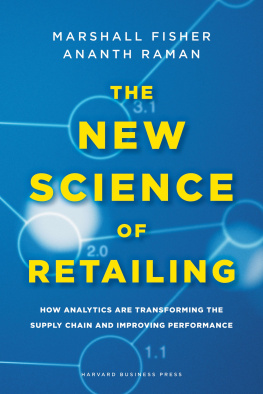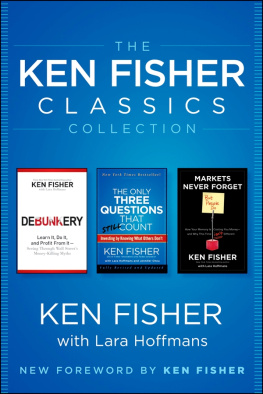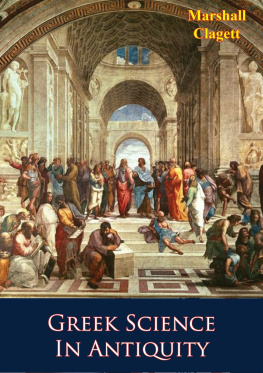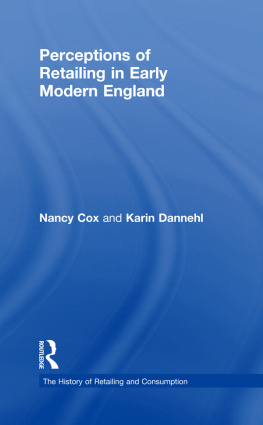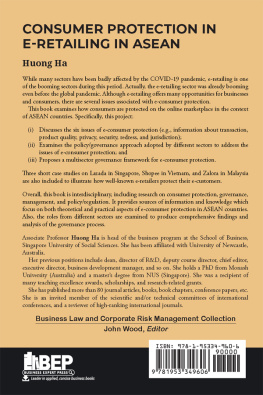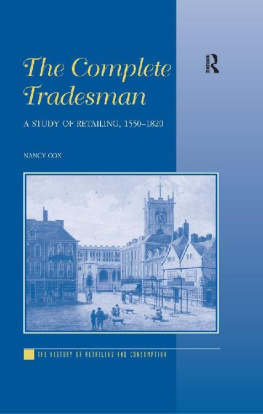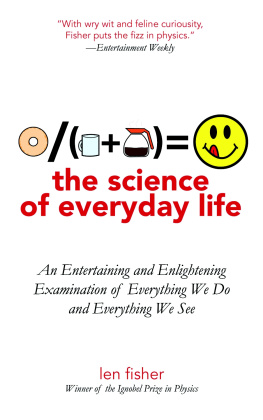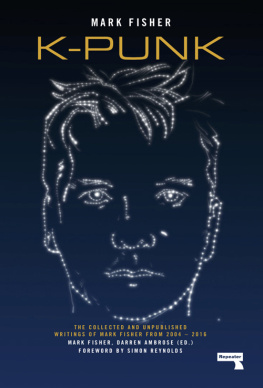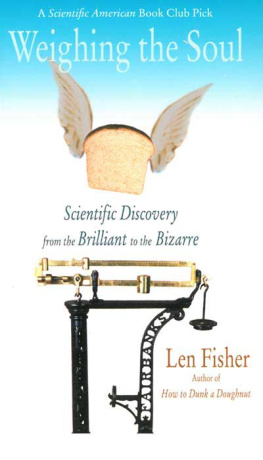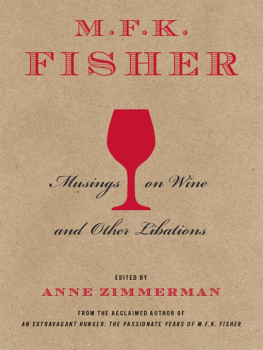Marshall Fisher - The New Science of Retailing
Here you can read online Marshall Fisher - The New Science of Retailing full text of the book (entire story) in english for free. Download pdf and epub, get meaning, cover and reviews about this ebook. year: 2011, publisher: Harvard Business Press, genre: Home and family. Description of the work, (preface) as well as reviews are available. Best literature library LitArk.com created for fans of good reading and offers a wide selection of genres:
Romance novel
Science fiction
Adventure
Detective
Science
History
Home and family
Prose
Art
Politics
Computer
Non-fiction
Religion
Business
Children
Humor
Choose a favorite category and find really read worthwhile books. Enjoy immersion in the world of imagination, feel the emotions of the characters or learn something new for yourself, make an fascinating discovery.
- Book:The New Science of Retailing
- Author:
- Publisher:Harvard Business Press
- Genre:
- Year:2011
- Rating:4 / 5
- Favourites:Add to favourites
- Your mark:
- 80
- 1
- 2
- 3
- 4
- 5
The New Science of Retailing: summary, description and annotation
We offer to read an annotation, description, summary or preface (depends on what the author of the book "The New Science of Retailing" wrote himself). If you haven't found the necessary information about the book — write in the comments, we will try to find it.
The New Science of Retailing — read online for free the complete book (whole text) full work
Below is the text of the book, divided by pages. System saving the place of the last page read, allows you to conveniently read the book "The New Science of Retailing" online for free, without having to search again every time where you left off. Put a bookmark, and you can go to the page where you finished reading at any time.
Font size:
Interval:
Bookmark:

We are fortunate to have worked with and learned from numerous academics and retail executives as we conducted research and developed the manuscript for this book.
We owe an enormous debt of gratitude to Walter Salmon, Stanley Roth, Sr. Professor of Retailing (emeritus) at Harvard Business School. We approached Walter in 1996 with the idea that in the computer age the scientific component of retail decision making would grow, and asked whether this phenomenon might create research opportunities. He provided encouragement, wise counsel, and crucial access to numerous retailers. He has continued to be a wonderful mentor, for which we are deeply appreciative.
We also extend thanks to three senior retail executives who have provided extensive guidance over the years and who reviewed and provided helpful feedback on an initial draft of this book: Robert DiRomualdo, Paul Gaffney, and Herbert Kleinberger.
We have greatly benefited from numerous doctoral students whom we have individually or jointly advised and collaborated with on retail operations research. The truth is, we learned far more from them than they did from us. Over the years, we have worked with Gerard Cachon (currently at Wharton), Nicole DeHoratius (University of Portland), Vishal Gaur (Cornell), Saravanan Kesavan (University of North Carolina), Gurhan Kok (Duke), Santiago Kraiselburd (MIT Zaragosa Logistics Center), Jayanth Krishnan (International Monetary Fund), Richard Lai (Wharton), Kumar Rajaram (UCLA), Zeynep Ton (Harvard Business School), Ramnath Vaidyanathan (McGill), and Noel Watson (MIT Zaragosa Logistics Center). We are confident that our current doctoral students Andres Catalan, Nathan Craig, and Bill Schmidt and our students students will continue the proud tradition established by these individuals, each of whom has worked countless hours over many years, sharpening the intellectual arguments relating to a particular area of the new science of retailing. This book is in many ways a necklace strung together from the intellectual beads that these students created over time.
Our doctoral students work has been very effectively complemented by the work and experience of our MBA students. We are fortunate to have taught for a number of years courses in retail operations and supply chain management that allowed us to bring some of our doctoral students research into the classroom. Our MBA students acted as a test market for and helped refine many of these ideas and materials. Thankfully, a number of these students have stayed in touch even after they had graduated from our classes and joined the real world. Many tried some of our ideas, and if these ideas did not work exactly as we had envisaged, they let us know and provided us with an opportunity to improve our thinking. We especially wish to mention several students who worked with us on projects, spoke in our classes, and/or provided extensive feedback on draft chapters: Tamar Bruckel, Robert Gsanger, Mandee Heller, Tamara King, Lilian Kuo, Daniel Marous, Colin McGranahan, Denis Minev, Rob Price, Joanne Stoner, Chris Utgaard, and Colin Welch.
We have benefited greatly from the Consortium for Operational Excellence in Retailing (COER), an industry-academic collaboration that included several dozen retailers and about a dozen schools. Each year more than fifty participating retail executives come to our annual COER conference to critique and sharpen our research. Many COER retailers have also opened up their firms for us to study, willingly sharing intimate details and data that allowed us to write case studies and papers. To each past and current participant in COER and our annual conferences, we would like to say: Thank you! This book and the underlying research could not have happened without your support.
After graduating from Harvard Business School in 1997, Anna Sheen McClelland became the executive director of COER. Her visible contributions included coauthoring a Harvard Business Review article and multiple case studies with the two of us. However, her real contributions were behind the scenes. Not only did she keep us organized and on schedule, she used her prior work experience with retailers like The Gap and J. Crew to keep us grounded in reality. This work would not be what it is without Annas involvement.
We have benefited greatly from interactions with other faculty, who have collaborated with us on projects, spoken at our COER conferences, provided advice on our research, or feedback on draft chapters of this book. These include Erin Armendinger, David Bell (HBS), David Bell (Wharton), Eric Bradlow, Dennis Campbell, Felipe Caro, Daniel Corsten, Nick Dedeke, Karen Donohue, Jan Fransoo, Frances Frei, Jrmie Gallien, Stephen Graves, Jan Hammond, William Hardgrave, Stephen Hoch, Arnd Huchzermeier, Chris Ittner, Katariina Kemppainen, Stephen Kobrin, Abba Kreiger, Rajiv Lal, V. G. Narayanan, Serguei Netessine, Andre Perold, Sanjay Sarma, Roy Shapiro, Jay Swaminathan, Anita Tucker, and Giulio Zotteri.
We have learned much from interactions with hundreds of retail executives. It is not feasible to list all of them, but we wanted to name a few who have provided extensive advice, allowed us access to their companies, spoken in our classes, or actively participated in COER: Chris Alcorn, Tim Andreae, Ved Arya, Ernesto Avendao, Jay Baker, David Berman, Arrigo Berni, Kishore Biyani, Greg Block, John Bloomfield, Timothy Brokaw, Pamela Cloud, William Cody, Rick Cohen, Michael Cramer, Steve Davis, Miguel Diaz, David Dobrin, Gordon Eiland, William Emerson, Rol Fessenden, Jerome Fisher, Marc Fisher, Kevin Freeland, George Frongillo, Gary Gleckner, James Halpin, Ari Haseotes, Richard Hayne, Rick Helfenbein, Tim Hopkins, Frank Jansen, David Johnston, Matt Kaness, Steve Kaufman, Jan Louagie, Robert Marshall, Catherine Martin, Steve Mastrogiacomo, Rebecca Matthias, Constantine Moros, Chris Moye, Yoko Ohara, John Reinertsen, Gene Rosadino, Katja Ruth, Bernie Sapienza, Bart Scheffer, B. J. Scheihing, Gerald Schleiffer, Leonard Schlesinger, Mark Schwartz, Glen Senk, Paul Shandlay, Sanjiv Sidhu, Amar Singh, Jeff Steinhorn, Thomas Stemberg, Andres Stockert, Jack Swem, Jules Takagishi, Hidezo Terai, Brian Tilzer, Charles Turlinski, Julian Van Erlach, Robert van Lunteren, Steve Walker, Michael Weiss, Freeman Zausner, and Michael Zisman.
The research would not have been possible without the financial support of Harvard Business School and The Wharton School, both of which generously supported us, our doctoral students, our research assistants, and our various research activities. The Alfred P. Sloan Foundation provided substantial financial support early in the project. A portion of the store execution research described in chapter 6 was supported by grants from Procter & Gamble and the ECR International Commerce Institute. Colin Peacock, director, Shrink & Store Operations Improvement at Procter & Gamble, and Andrew Buteux, formerly with P&G and now a partner with The Partnering Group, were wonderful mentors to us in this research. Retailers that provided financial support include Albert Heijn; Borders; Bulgari; H. E. Butt Grocery Company; CompUSA; Davids Bridal; Giant Eagle; Iceland Frozen Foods; Nine West Group; Sears, Roebuck and Co.; Staples; Tiffany & Co.; and World Co. Ltd.
We were fortunate that, in addition to our academic research program, we also had a clinical practice. For more than a decade, we have had the pleasure of working on a number of consulting projects that culminated in the formation of a start-up company, 4R Systems, in early 2000. It has been fascinating to watch 4R grow up and stand on its own feet. The numerous people who have worked at and enriched 4R, as well as the investors and clients who had faith in the companys scientific approach, have contributed to our knowledge and this book. We especially wish to mention Jiri Nechleba, Steffano Alberti, Dave Leonard, and Wayne Hyatt, working at 4R; and Todd Miller, Walter Salmon, Tom Shepherd, Renny Smith, and Michael Zisman, who have served on 4Rs board of directors.
Font size:
Interval:
Bookmark:
Similar books «The New Science of Retailing»
Look at similar books to The New Science of Retailing. We have selected literature similar in name and meaning in the hope of providing readers with more options to find new, interesting, not yet read works.
Discussion, reviews of the book The New Science of Retailing and just readers' own opinions. Leave your comments, write what you think about the work, its meaning or the main characters. Specify what exactly you liked and what you didn't like, and why you think so.

